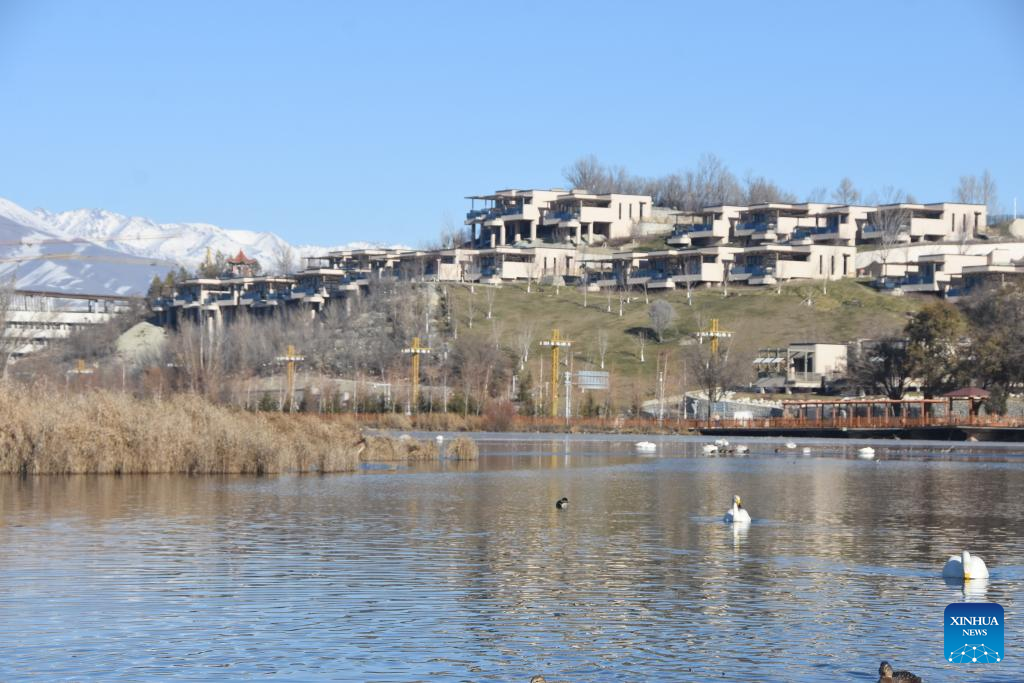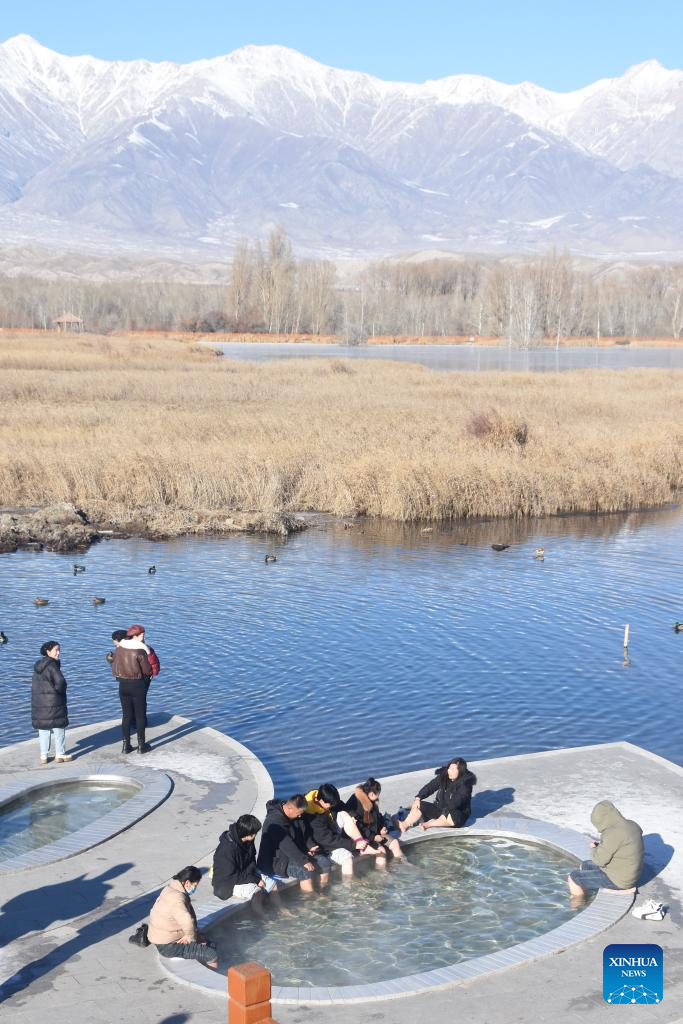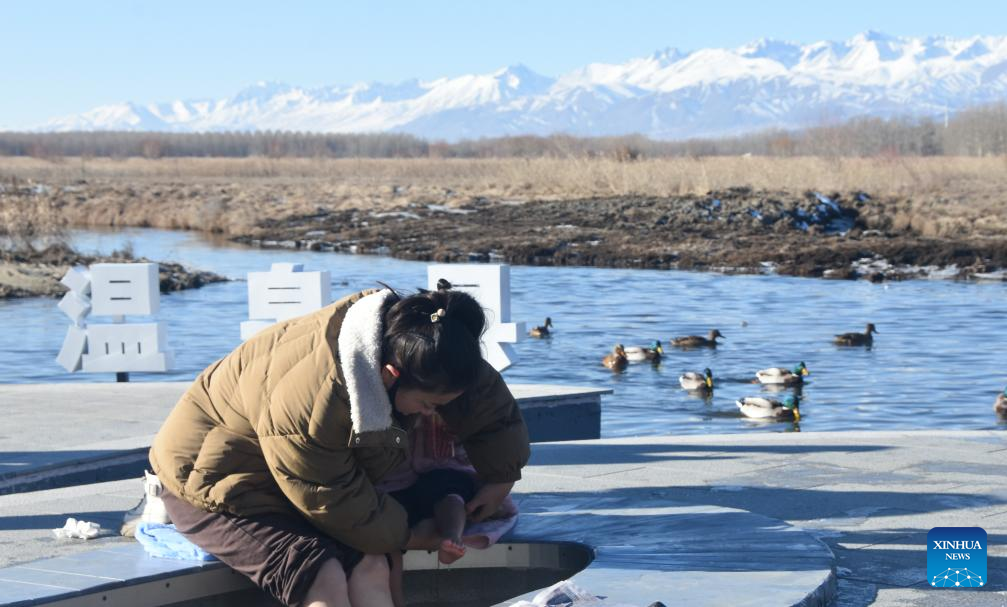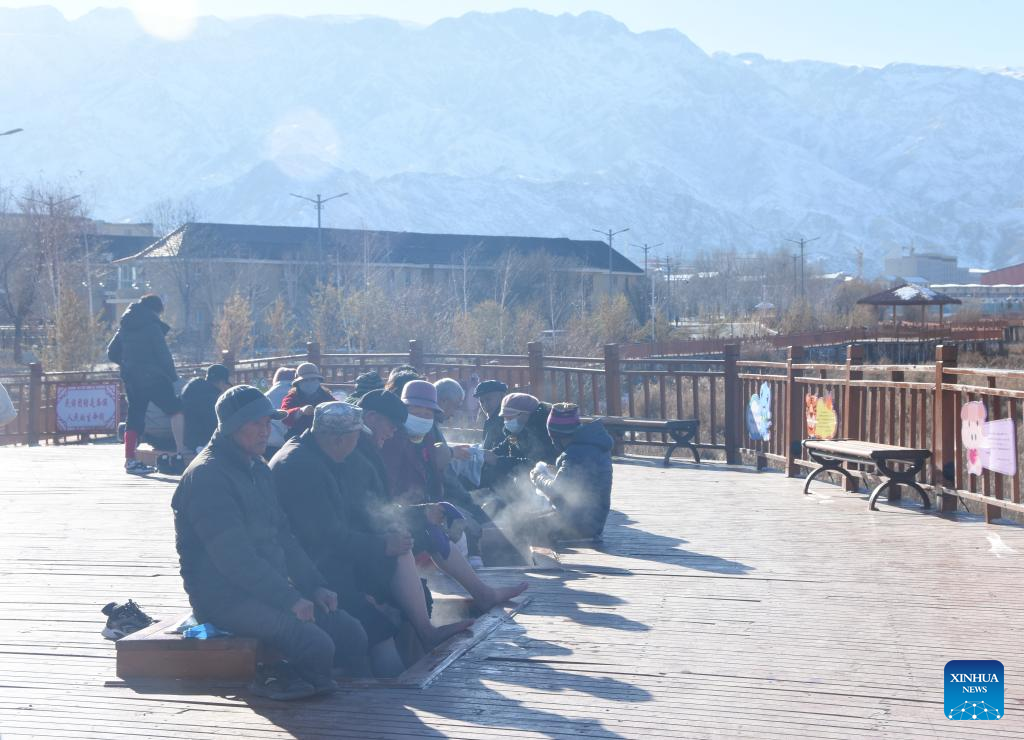
This photo taken on Nov. 28, 2024 shows a hot spring hotel in Wenquan County, northwest China's Xinjiang Uygur Autonomous Region. (Xinhua/Zhang Xiaolong)
URUMQI, Dec. 21 (Xinhua) -- With snow-capped mountains rising majestically in the distance, Kulmkhan Bagatur sat with her daughter, their feet basking in the soothing warmth of a natural hot spring and whispered, "It's almost too beautiful to believe," as the serene landscape seemed to belong to another world.
Wenquan County, located in the Mongolian Autonomous Prefecture of Bortala in northwest China's Xinjiang Uygur Autonomous Region, is famed for its abundant geothermal resources, with numerous such natural hot springs scattered throughout the area.
Over the decades, these hot springs have undergone remarkable transformations, thanks to local government initiatives.
The use of hot springs in Wenquan dates back to an ancient, unrecorded past, when locals created makeshift pools near spring sources, fortifying them with stones. Springs closer to urban areas served villagers, while those in the mountains became a vital resource for herders, who believed the springs could relieve ailments such as rheumatism and arthritis.
By the early 1990s, as economic growth and tourism gained momentum, these natural springs were further developed into basic bathhouses.
"Modest facilities were built near the springs, with pipelines channeling water into public pools. By the 2000s, these bathhouses grew more sophisticated, incorporating tiled interiors and even combining accommodations with thermal bathing amenities," said Gao Xinxin, a native of Wenquan County.
It was not until 2016 that the local government started to invest heavily in the hot spring infrastructure and facilities. Natural hot spring water was channeled to hotel rooms and public bathing pools.
"The county boasts a breathtaking blend of Xinjiang's iconic landscapes, such as snow-capped mountains, vast grasslands, winding rivers and serene wetlands, like a microcosm of the region's beauty. Here, visitors can soak in hot springs while taking in the stunning scenery," said Gao, who works with the local cultural and tourism department.
In recent years, Wenquan has seen the establishment of seven high-end hot spring hotels, each with an investment exceeding 100 million yuan (about 14 million U.S. dollars).
These developments also reflect the local government's commitment to enhancing people's well-being through community-focused projects. With an investment of 10 million yuan, several public hot spring facilities are under construction and are expected to be operational by May next year.
The government is currently optimizing the hot spring pipeline network to extend access to homestays, hotels and residential communities. According to Gao, the goal is to transform Wenquan into a vibrant hot spring destination, where both locals and tourists can enjoy its geothermal treasures. ■

This photo taken on Nov. 28, 2024 shows a natural hot spring in Wenquan County, northwest China's Xinjiang Uygur Autonomous Region. (Xinhua/Zhang Xiaolong)

Kulmkhan Bagatur and her daughter soak their feet in the soothing warmth of a natural hot spring in Wenquan County, northwest China's Xinjiang Uygur Autonomous Region, Nov. 28, 2024. (Xinhua/Zhang Xiaolong)

People soak their feet in the soothing warmth of a natural hot spring in Wenquan County, northwest China's Xinjiang Uygur Autonomous Region, Nov. 28, 2024. (Xinhua/Zhang Xiaolong)



